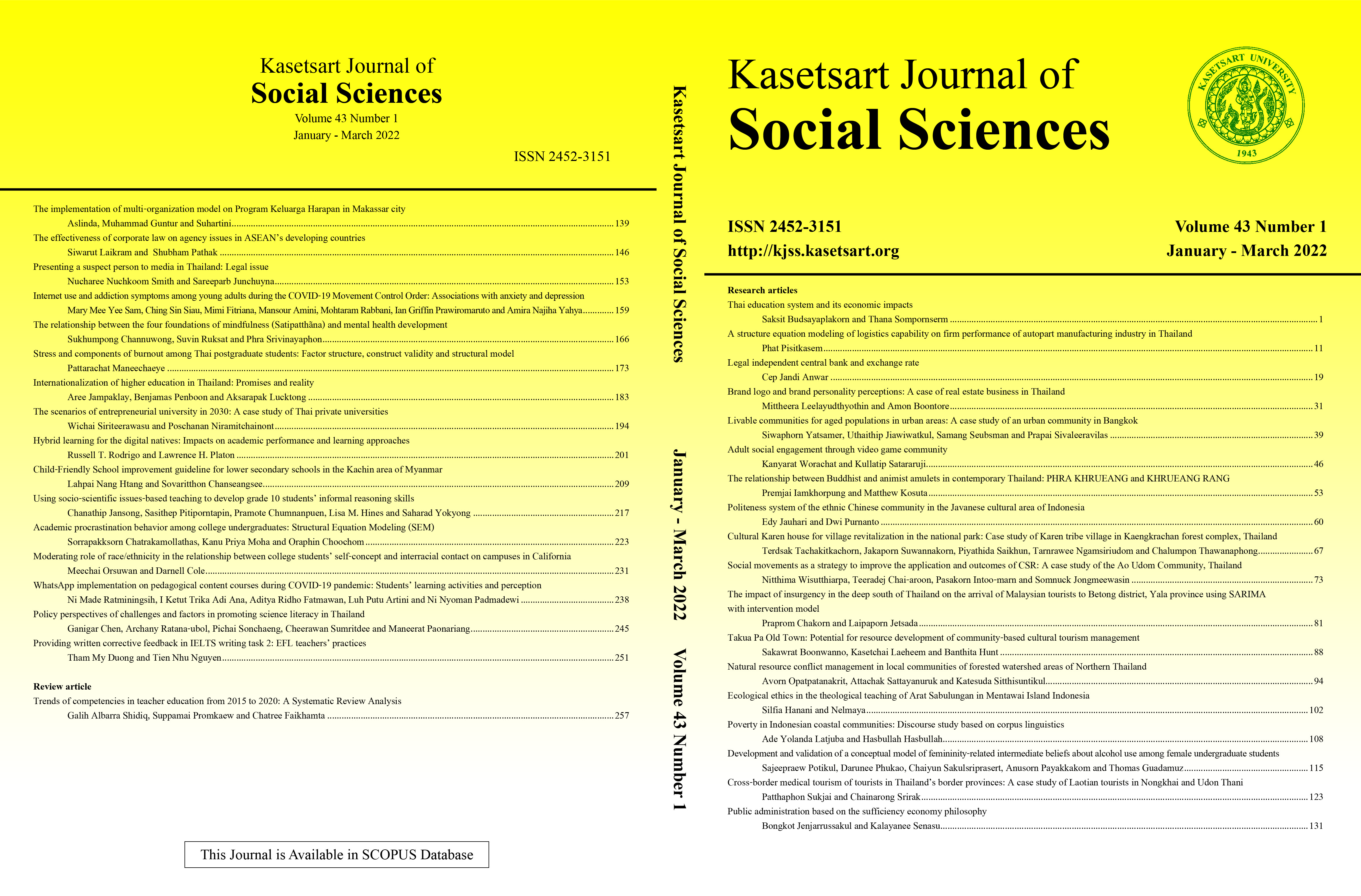Thai education system and its economic impacts
Keywords:
economic growth, education, unemploymentAbstract
This research aimed to analyze Thai education system and its economic impacts during 1990–2018. Bivariate Granger Causality Tests were used to analyze causal relation among variables, then the structural equations were estimated using 2SLS Method. The results indicate that all of the educational variables used in this research do not significantly affect both GDP growth and GDP per capita growth in Thailand; however, the pupil teacher ratio, human development indicator, and average years of schooling can affect the unemployment rate. The policy recommendation from this research focuses on managing the quality of education. In addition, an increase in the average years of schooling from secondary school to university level can reduce the problems related to the shortage of skilled labor.
Downloads
Published
How to Cite
Issue
Section
License

This work is licensed under a Creative Commons Attribution-NonCommercial-NoDerivatives 4.0 International License.
This is an open access article under the CC BY-NC-ND license http://creativecommons.org/licenses/by-nc-nd/4.0/










